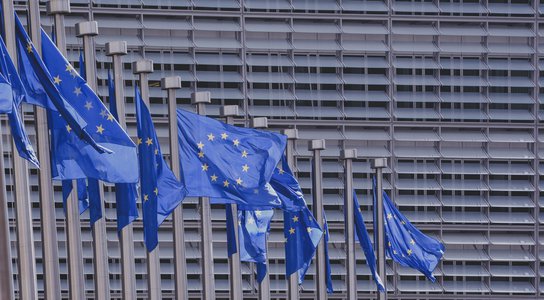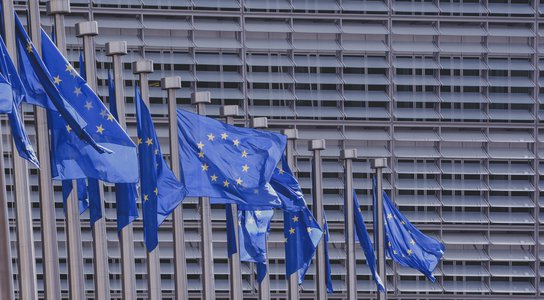As the new European Commissioners take up their roles this December, there are increasing calls for legislators to act on the environmental, human rights risks linked to businesses either based or operating in the EU. Many member states are already moving to legislate – so will the new Commission listen to this growing political momentum and introduce EU wide corporate due diligence rules?
This past month corporate accountability was a key topic of discussion amongst decisions makers at both international and EU level.
The United Nations Forum on Business and Human Rights on 25 – 27 November, for example, focused almost exclusively on the common theme of corporate supply chain due diligence as a key tool that multinational companies should integrate into their management systems, to ensure they respect human rights and the environment.
At the Forum, Global Witness spoke in a panel discussion looking specifically at how investors can use due diligence to mitigate growing environmental, social and governance—so called ‘ESG’—risks. The panel highlighted the new EU rules on investor disclosure that will require a wide range of EU based investors to integrate ESG risks and impacts into their investment decision making. They must also disclose their impacts on people and planet in line with existing international due diligence standards.
But maybe most significantly for the theme of the UN Forum, these new rules will oblige investors subject to the new regulation to publish their “due diligence” policies. This means they will now need to publicly state how they systematically identify, prevent, mitigate and account for adverse human rights, environmental and corruption impacts of their investment decisions.
This development is significant enough that it has lead a group of progressive investors in the Investor Alliance for Human Rights to issue a call to governments to introduce mandatory due diligence requirements for all companies. We have also seen some of the world’s biggest chocolate companies issuing a similar call as a way to tackle rampant deforestation.
These calls to action echoed the widely held sentiments in the UN Forum that voluntary measures have failed to change corporate culture and it is time that legislators stepped in and began to regulate. Panellists also pointed to the growing trend towards hard law on human rights and environmental due diligence at the national level in the EU.
Why is this important?
From the legal case against the French oil giant Total on alleged human rights and environmental violations in Uganda to the struggles of environmental and land defenders against the destruction of their land, documented by Global Witness, the human and environmental cost of the corporate footprint is ever present.
There is also extensive evidence that the majority of the 23 largest companies mining cobalt, copper, lithium, manganese, nickel and zinc – the six minerals essential to the renewable energy industry – have faced allegations of abuse including land rights infringements, corruption, violence or death over the past 10 years.
So what supply chain due diligence rules are currently in place and why is now the time for the EU to act?
Like the investor disclosure rules, there are existing EU laws setting out human rights and environmental due diligence requirements for some industry sectors, such as timber, banking (to tackle money laundering) and specific minerals. These rules aren’t uniform in approach and only cover certain sectors and risks, showing that there is a need for a cross-sectoral law to ensure that all companies and finance minimise their harm to people and planet.
This is why EU member states have been acting one after another on a national level to introduce laws on supply chain due diligence. Such national initiatives include France’s ‘Duty of Care’ rules and the Netherlands’ ‘Child Labour Law’. The German government has also introduced a National Action Plan, calling for the Federal government to introduce legislation if companies do not voluntarily opt-in to due diligence rules, and the German Development Ministry and Labour Ministry have announced that they intend to act on introducing due diligence rules. German business have also joined other global business voices in the rallying call for hard law.
Yet while national action is welcome, the different approaches show the clear need for harmonisation and a level playing field across the EU. The Finnish government, which holds the EU presidency until the end of the year, has recognised this in their Agenda for Action on Business and Human Rights.
The Finnish launched their Agenda at their recent Business and Human Rights conference, giving a distinct EU flavour to the topics covered at the more global UN Forum. In this Agenda for Action, the Finnish government very clearly calls on the EU institutions to introduce a regulatory framework for corporate due diligence, including access to remedies for affected stakeholders.
This call echoes a call to action launched ahead of their conference where over 100 civil society organisations, including Global Witness, called on the European Commission to bring forward effective supply chain due diligence legislation—in line with international standards—for all businesses operating in the EU.
Global Witness supported this joint call to the EU, as we believe that there should be mandatory requirements for companies and finance to identify, prevent, mitigate and publicly report on human rights, environmental and corruption risks linked to their global operations, subsidiaries or value chains. Any new law must also include meaningful sanctions and penalties for a failure to meet its requirements, and a corporate liability regime where harms are caused.
These recent events and public calls to action, demonstrate there is growing alignment between national governments and civil society on the need for effective EU rules on corporate human rights and environmental due diligence. And given the new European Commission has just started its mandate, what better time to act than now.
But what should the new EU Commission do and how should they start?
What is key in all of these discussions is that due diligence itself is not a new concept for business, who are used to identifying and managing a wide range of legal and other risks along their supply and value chains, from money laundering and corruption risks, to quality controls and health and safety impacts.
In fact, existing international standards already provide a practical due diligence framework for companies including the OECD Due Diligence Guidance for Responsible Business Conduct (OECD RBC Guidance) and the UN Guiding Principles on Business and Human Rights (UNGPs).
The UN Human Rights Council unanimously endorsed the UNGPs in 2011, and 48 countries have endorsed the OECD MNE Guidelines, including almost all EU Member States. Drafted in collaboration with business and industry, the OECD standards set out an internationally agreed set of comprehensive due diligence steps and requirements.
So what is the EU waiting for?
The new European Commissioner responsible for this work, Didier Reynders, has just taken his position so it may be a few weeks before he makes any big announcements.
However, during his Commissioner hearing, Members of the European Parliament made it clear that they expect the Commissioner to act swiftly and introduce mandatory requirements on corporate environmental and human rights due diligence.
Without doubt, the eyes of civil society organisations, citizens, MEPs and EU member states will be on Commissioner Reynders and his cabinet to see if he lives up to expectations.


